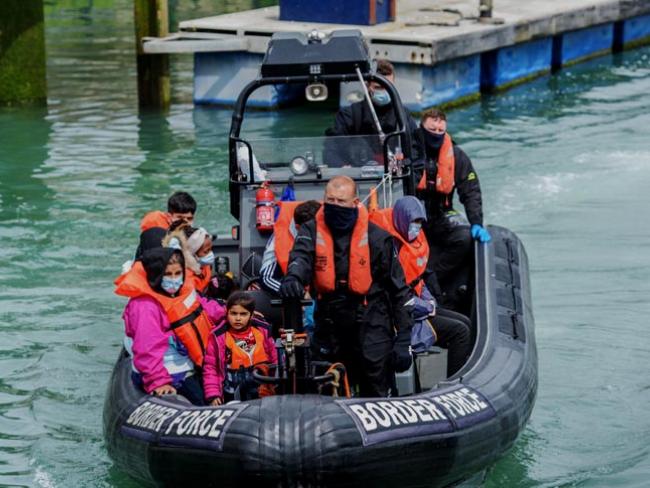19 September 2025

Migrants brought ashore at Dover by Border Force. Photo Sean Aidan Calderbank/shutterstock.com.
The latest data on immigration shows that Britain does not control its borders and that Labour has broken its promises.
When Labour stood for election last year it said it would “smash the criminal boat gangs” illegally importing migrant workers into Britain. It also said that it would curtail legal immigration.
Disappointed
It may be that many people voted for them for these very reasons. If so, they would be disappointed, though no more than in their other headline manifesto promises on the economy, the NHS, energy, law and order, and teachers.
The results on migration after a year show some change but no real progress in reducing the number of migrants. For the year ending in June, over 111,0000 people were registered as having applied for asylum. This does not count those arriving illegally who evade detection and don’t claim asylum.
Record
This is a massive 14 per cent increase over the previous year's figure of 97,000 and is the highest ever recorded. Since 2021 the number has doubled.
The government claims success in reducing the backlog of people waiting an initial decision to “only” 79,000. That’s on a par with the figure in 2021; it peaked at 134,000 in 2023, dropping to 86,000 last June.
Backlog
But that’s not the whole picture. The appeals backlog has shot up from 8,000 in 2023 to 51,000 this March – an increase of over 500 per cent in two years over the more or less the steady level since 2015. So that’s still around 130,000 people in the process of claiming asylum.
While the number of “returns” (people who don’t remain in the UK) is up slightly to 35,000, it’s small compared to the number of asylum claims overall. And that is overshadowed by the difficulty with enforced returns; the much-trumpeted deal with France is not looking very effective so far.
‘These are massive sums, resources that are needed elsewhere.’
Further figures reveal that 32,000 asylum seekers were housed in hotels at the end of June, over 8 per cent more than a year earlier. The government has spent £4.8 billion on the asylum system (asylum seekers) in the last year, down from £5.4 billion the previous year. These are massive sums, resources that are needed elsewhere, not least for border control.
Around 77 per cent of asylum seekers were granted residence in 2019. The percentage (of a higher number of claimants) has dropped to just below 50 per cent. Around half of those arriving and claiming asylum came through what are euphemistically called “irregular routes”. A better description would be “criminal and highly profitable routes”.
Stretching credulity
Labour ministers are prone to point to the failures of their predecessors, in this as well as many other policy areas. They are correct in that these failures are long-term. But for the outgoing Home Secretary Yvette Coper to characterise what they have done as fixing the “broken” asylum and immigration system they inherited is stretching credulity.
Starmer in his manifesto headlined keeping the country safe as the first duty of government. He was talking about preparing for war in Europe, but should have been thinking about investing in coastal patrols to secure our borders.
Criminality
The level of legal migration into Britain – 860,000 in 2023 and 430,000 last year – is higher than illegal routes, and is of concern to workers for the impact on jobs and resources. But the scale of illegal migration and associated criminality cannot be ignored.
It’s not enough for companies to publish modern slavery statements and for charities to support those who arrive here. It’s up to the workers of Britain to say no to criminal trafficking, and that entails control of our borders.
